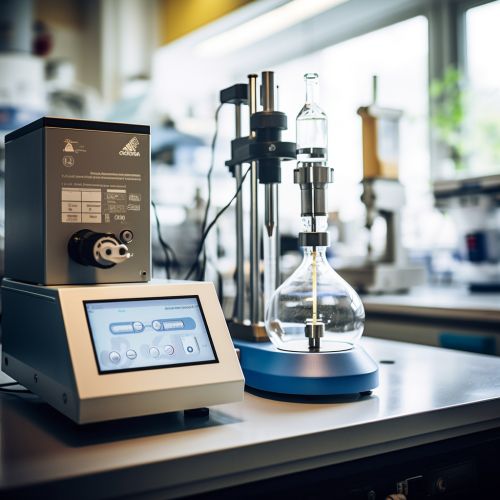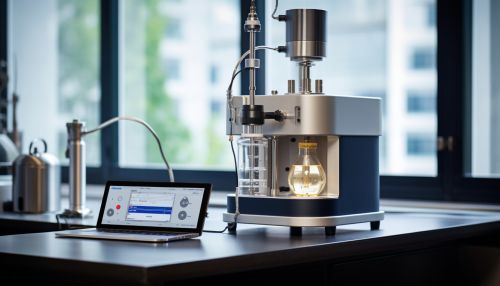Rheology
Introduction
Rheology is the scientific study of the flow and deformation of matter, particularly liquids and soft solids. It is a branch of physics that deals with the properties of materials that cannot be described by a single value of viscosity. Rheology is applicable in materials science, geophysics, and biology, among other fields. It is a complex discipline that requires a deep understanding of physics, chemistry, and materials science read more.
History
The term "rheology" was coined by Eugene C. Bingham, a chemist, and Markus Reiner, a physicist, in the 1920s. The word comes from the Greek "rheo-" meaning "flow" and "-logy" meaning "study of". Rheology as a distinct field of study emerged in the late 19th and early 20th centuries, with the development of the first precise instruments for measuring viscosity and elasticity read more.
Basic Principles
Rheology is concerned with the behavior of materials when subjected to forces. This includes both the flow of fluids and the deformation of solids. Rheological behavior is typically characterized by a material's viscosity, elasticity, and plasticity.
Viscosity is a measure of a fluid's resistance to shear or flow. It is often described as the "thickness" of a fluid. For example, honey has a higher viscosity than water read more.
Elasticity is a measure of a material's ability to return to its original shape after being deformed. Rubber, for example, is highly elastic read more.
Plasticity is a measure of a material's ability to permanently deform without breaking, when subjected to stress. Clay, for example, is highly plastic read more.
Measurement Techniques
Rheological properties are typically measured using a rheometer. There are several types of rheometers, including capillary, rotational, and oscillatory. The choice of rheometer depends on the material being tested and the rheological properties of interest read more.
Applications
Rheology has a wide range of applications in various fields. In materials science, it is used to characterize the behavior of polymers, ceramics, and metals. In geophysics, it is used to study the flow of magma and the deformation of the Earth's crust. In biology, it is used to study the properties of biological tissues and fluids read more.
Future Directions
Rheology is a rapidly evolving field, with new applications and techniques being developed all the time. One area of active research is the development of new rheometers that can measure rheological properties at the nanoscale. Another area of interest is the study of non-Newtonian fluids, which exhibit complex rheological behavior that cannot be described by classical rheology read more.
See Also


